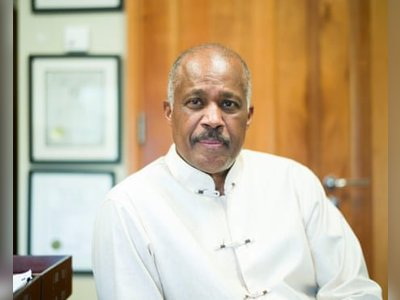Britain to Reform Human-Rights Laws in Sweeping Asylum Policy Overhaul
Government sets out changes to interpretation of European Convention on Human Rights to accelerate deportations and tighten asylum pathways
The British government announced a major overhaul of its asylum policy framework, seeking to restrict how human-rights protections are applied to migrants arriving illegally.
The reforms, unveiled by Interior Minister Shabana Mahmood and endorsed by Prime Minister Keir Starmer, will amend the way the European Convention on Human Rights (ECHR) is interpreted by courts in the United Kingdom, with officials saying the changes will curb “endless appeals” and ramp up removals of those with no right to stay.
Under the new regime, Article 8 of the ECHR — which protects the right to family life — will be narrowed so that only close relations such as a parent or child will qualify as a connection preventing deportation.
Article 3 — which prohibits torture or inhuman or degrading treatment — will also be revisited, with the government stating the current interpretation has expanded “beyond what is reasonable”.
Meanwhile, refugee status will be reframed as temporary rather than permanent, and the waiting period for indefinite settlement extended.
The moves form part of what the government describes as “the most sweeping asylum policy overhaul of modern times”.
It comes amid sustained pressure from voters and strong polling for the anti-immigration Reform UK party, which has dominated public debate on migration.
The Home Office says the objective is to make the asylum system faster, fairer and credible, while maintaining Britain’s commitment to protecting those fleeing persecution.
Human-rights charities and refugee organisations have strongly warned that the changes risk eroding protections for vulnerable individuals.
They argue the measures may lead to “people being sent back to their torturers” or denied proper access to family reunion on tenuous grounds.
The government insists it remains in the convention and will work with “like-minded” countries to update protections from the ground up.
Legal experts note that refinements to the interpretation of the ECHR may still require treaty amendment or sustained cooperation with European partners.
There is precedent for more than a dozen European countries expressing support for reform of the convention’s application in asylum matters, though states emphasise that core human-rights obligations should remain intact.
With the policy due to be formally introduced this week, attention now turns to how the reforms will be implemented in legislation and how they will navigate potential legal challenges.
The government has pledged to fast-track appeals, prioritise removal of foreign criminals, and limit use of modern-slavery claims to delay deportation.
These changes mark a shift in Britain’s approach to asylum- and migration-policy enforcement, with implications for public debate, legal safeguards and the country’s international commitments.
The reforms, unveiled by Interior Minister Shabana Mahmood and endorsed by Prime Minister Keir Starmer, will amend the way the European Convention on Human Rights (ECHR) is interpreted by courts in the United Kingdom, with officials saying the changes will curb “endless appeals” and ramp up removals of those with no right to stay.
Under the new regime, Article 8 of the ECHR — which protects the right to family life — will be narrowed so that only close relations such as a parent or child will qualify as a connection preventing deportation.
Article 3 — which prohibits torture or inhuman or degrading treatment — will also be revisited, with the government stating the current interpretation has expanded “beyond what is reasonable”.
Meanwhile, refugee status will be reframed as temporary rather than permanent, and the waiting period for indefinite settlement extended.
The moves form part of what the government describes as “the most sweeping asylum policy overhaul of modern times”.
It comes amid sustained pressure from voters and strong polling for the anti-immigration Reform UK party, which has dominated public debate on migration.
The Home Office says the objective is to make the asylum system faster, fairer and credible, while maintaining Britain’s commitment to protecting those fleeing persecution.
Human-rights charities and refugee organisations have strongly warned that the changes risk eroding protections for vulnerable individuals.
They argue the measures may lead to “people being sent back to their torturers” or denied proper access to family reunion on tenuous grounds.
The government insists it remains in the convention and will work with “like-minded” countries to update protections from the ground up.
Legal experts note that refinements to the interpretation of the ECHR may still require treaty amendment or sustained cooperation with European partners.
There is precedent for more than a dozen European countries expressing support for reform of the convention’s application in asylum matters, though states emphasise that core human-rights obligations should remain intact.
With the policy due to be formally introduced this week, attention now turns to how the reforms will be implemented in legislation and how they will navigate potential legal challenges.
The government has pledged to fast-track appeals, prioritise removal of foreign criminals, and limit use of modern-slavery claims to delay deportation.
These changes mark a shift in Britain’s approach to asylum- and migration-policy enforcement, with implications for public debate, legal safeguards and the country’s international commitments.









